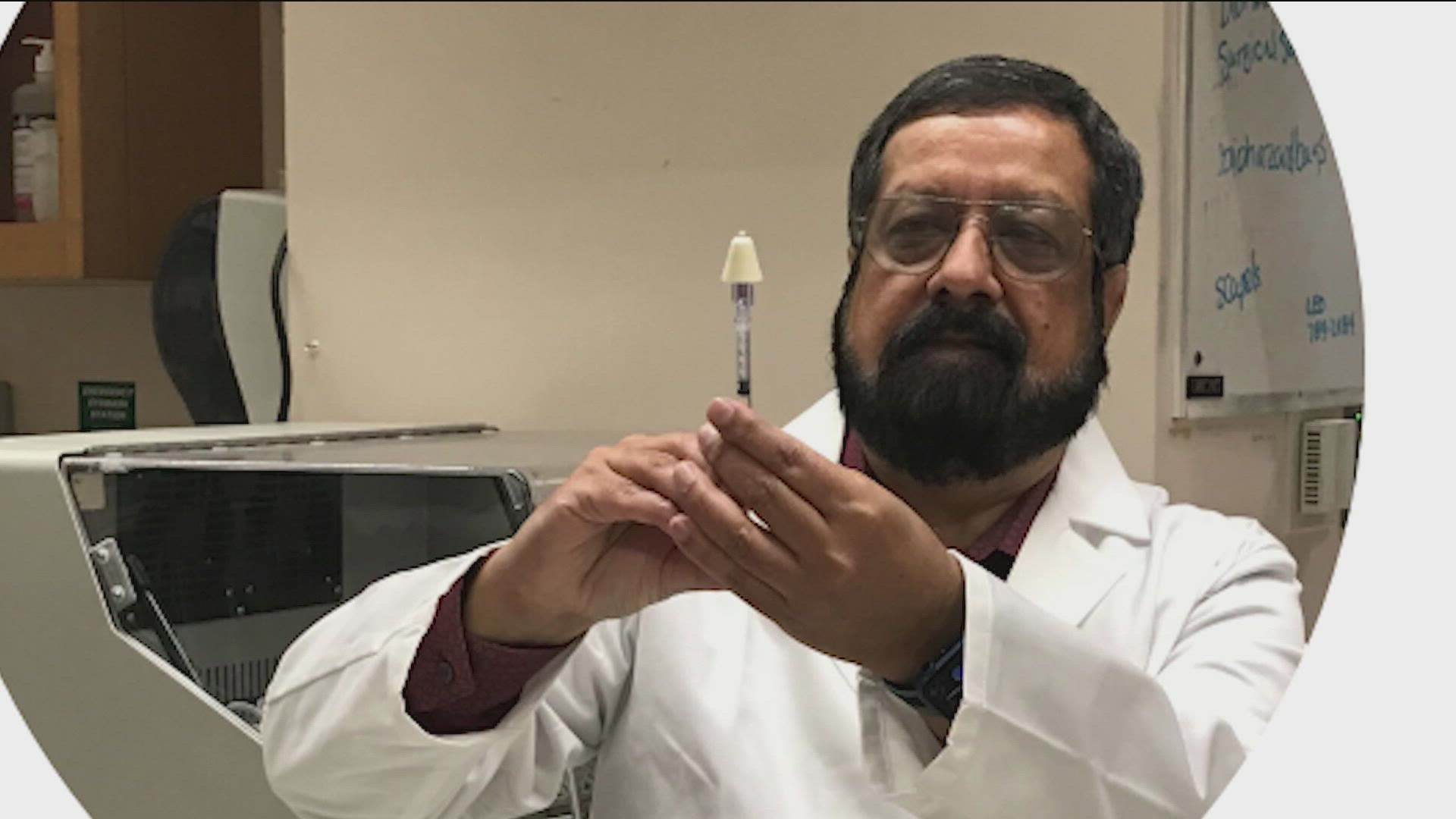AUSTIN, Texas — A group of researchers at the University of Texas have developed a device that can more accurately differentiate positive COVID-19 and flu tests.
The technology, called "Lab-on-a-Chip," is a small, lightweight device that uses saliva to determine an accurate test. According to the research team, the goal is to provide lab-quality diagnostics, while shrinking them down to a portable size so they can reach people in isolated areas.
“Though COVID isn’t top of mind for most of us like in 2020, emergence of new variants has made it increasingly challenging to differentiate it from other infectious diseases with similar symptoms, such as the common cold and seasonal flu,” said Ray Chen, professor in the Chandra Family Department of Computer and Electrical Engineering and leader of the study published in Applied Physics Review. “Timely detection of COVID-19 is essential for patients to receive treatment and for curtailing the spread of the epidemic.”
Researchers say the purpose of this new technology is to test for dozens of different illnesses in a single sample, including COVID-19 and the flu, as well as other coronavirus-based diseases and even some types of cancer.
In recent years, several other research groups have developed “lab-on-a-chip” testing solutions as a potential alternative to PCR, but many of those devices were not sensitive enough to detect the virus in early phases or when there was a low concentration in the sample.
According to the research team, the new testing platform should overcome that, in addition to its ability to differentiate between illnesses. It features a “y”-shaped, double-layered microfluidic chip, which can test multiple samples at the same time, a 3D-printed holder and specialized packaging.

